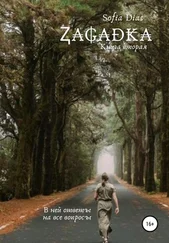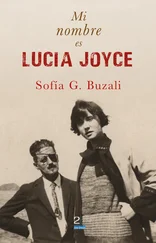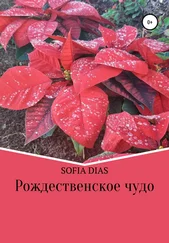“Lunre,” the stranger said eagerly, tapping his own narrow chest.
“Lun-le,” my mother repeated. Her sweet smile flickered, a feather on the wind. Soon after this she presented him, shyly, yet with a secret pride, with a vest and a pair of trousers she had sewn for his lanky body. They were very fine, the trousers flowing and patterned with rose and gold, the vest embroidered in blue with the bold designs of both Tyom and Pitot. The stranger was deeply moved and stood for some time with his hand on his heart, his silver head bowed, thanking her earnestly in the language of raindrops. My father’s wife did not fail to sneer at my mother’s kindness to her “ghost,” but my mother only smiled and said serenely: “The Tetchi is blowing.”
When the miracle wind had blown for a month, my father dismissed my old tutor, a dotard with hairy ears who had taught me mathematics, religion, and history. The Olondrian, he explained to me as I sat before him one morning, was to take the old man’s place, tutoring me in the northern tongue. His eyes contracted with pleasure as he spoke, and he waved the stump of his narrow cigar and patted his ample stomach. “My son,” he said, “what good fortune is yours! Someday, when you own the farm, you will feel at ease in Bain and will never be cheated in the spice markets! Yes, I want you to have a Bainish gentleman’s education—the tall one will teach you to speak Olondrian, and to read in books.”
The word for “book” in all the known languages of the earth is vallon , “chamber of words,” the Olondrian name for that tool of enchantment and art. I had no idea of its meaning but thanked my father in a low voice as he smoked his cigar with a flourish and grunted to show that he had heard me. I was both excited and frightened to think of studying with the stranger, for I was shy around him and found his green gaze disconcerting. I could not see how he would teach me, since we shared no common language—but I joined him dutifully in the schoolroom that opened onto the back garden.
He began by taking me by the wrist and leading me around the room, pointing to things and naming them, signing that I should repeat. When I had learned the names of all the objects in the schoolroom, he took me into the kitchen garden and named the vegetables. If there were plants he did not know, he pointed and raised his gull-gray eyebrows, which meant that he wished to learn the Kideti word. He carried with him always a leather satchel of very fine make, in which he kept another leather object, dyed peacock-blue; when he opened it, sheets of rich cotton paper spread out like a fan, some of them marked with minute patterns which he had made himself. The satchel had a narrow pocket sewn to an outside edge, fastened shut with a metal clasp and set with bits of turquoise, and in this my new master kept two or three miraculous ink pens, filled only once a day, with which he made marks in his vallon . Whenever I told him a word in our language, he took out his blue leather book, wrote something in it rapidly, and thanked me with a bow. I was puzzled, for though I admired the book as more cunning than our wooden blocks, I could not understand why he wished to keep track of the number of words he had learned.
At last one morning he brought a wooden box with him into the schoolroom, a splendid receptacle covered with patterns in gilt, paint, and mother-of-pearl. Orange flowers danced on its dark blue lid, and in a cloud of golden stars a pair of ivory hands floated: the hands of spirits. I knew that the box had come from my master’s heavy, ornate sea chest, with which my father’s servants had toiled through the damp forests of the island, in which he was said to keep the awful trappings of a magician, as well as the bones of his wife, her skull as flawless as a bride’s. He set the box on the round, flat stone that served us as a table. I knelt on my mat with my elbows on the stone, cupping my chin in my hands. My master preferred to sit on a stool, hunkering over the table, his legs splayed out, his crooked knees rising above the level of the stone. He did so now, then removed his satchel and set it on the table, and drew from it a slim book bound in red leather.
“For you,” he said in Olondrian, sliding the little book toward me.
I felt a rush of excitement and a tightness in my throat. I took up the book and tried to put my gratitude into my eyes, while my master grinned and cracked his spider’s knuckles, a habit he had when pleased.
The schoolroom was already warm. The long light came in through the garden archway, and the voices of the servants reached us from the kitchen next door. I turned the little book tenderly in my hands, fingering the spine, and at last, with a sharp intake of breath, I opened it. It was empty.
I touched the blank paper and looked at my master reproachfully. He chuckled and squeezed his knuckles, apparently charmed by my disappointment. I knew enough of his speech to ask at last: “What is it, Tchavi?”—addressing him, as I always did, with the Kideti word for “Master.”
He held up a finger, signaling for me to wait and pay attention. He opened the book before me at the first page and smoothed the paper. Then he unlatched the ornate box, revealing a neat shelf suspended inside the lid, flecked with diamonds of yellow paint. Humming cheerfully to himself, he removed several small clay jars, each with a tiny cork in it, and a little red cut-glass bottle. His fingers hovered over the shelf for a moment before selecting an engraved silver pen from an ivory case. Swiftly, with fluid, dexterous movements, he unstoppered one of the jars, releasing the dark odor of rust and aloes. He added a few drops from the glass bottle, which made the room smell of pollen, and stirred the resultant brew with a slender reed. The reed came out very black, and he rested it in a shallow dish. Then he filled the pen from the jar by turning its tip. He wiped its nib on a silken cloth much stained by streaks of ink; then he leaned toward me, bent over my book, and wrote five intricate signs.
I understood now that my master meant to teach me the Olondrian numbers, and how to record accounts, as he did, in neat, small rows in a book. I leaned forward eagerly, imagining how it would please my father when he saw his son writing numbers on paper just like a Bainish gentleman. I had my own secret misgivings, for though the book was easy to carry, much more so than the blocks on which we wrote with a piece of hot iron, it seemed to me that the pages could be easily ruined by seawater, that the ink could smear, and that this was a flimsy way of keeping records. Nevertheless the strange signs, fluted like seashells, captivated me so that my master laughed with pleasure and patted my shoulder. I moved my finger slowly under the row of graceful figures, memorizing the foreign shapes of the numbers one through five.
“Shevick,” my master said.
I glanced at him expectantly at the sound of his familiar mispronunciation of my name.
“Shevick,” he said again, pointing down at the signs on the page.
I said to him proudly, in his own tongue: “One, two, three, four, five.”
He shook his head. “Shevick, Shevick,” he said, tapping the paper. I frowned and shrugged, saying, “Forgive me, Tchavi. I don’t understand.”
My master put up his hands, palms outward, and pushed gently at the air, showing that he was not angry. Then he bent forward patiently. “ Sh ,” he said, pointing with his pen at the first sign on the page; then he moved the pen to the second sign and said distinctly: “ Eh .” But only when he had described all the signs several times, repeating my name, did I understand with a shock that I was in the presence of sorcery: that the signs were not numbers at all, but could speak, like the single-stringed Tyomish harp, which can mimic the human voice and is called “the sister of the wind.”
Читать дальше












